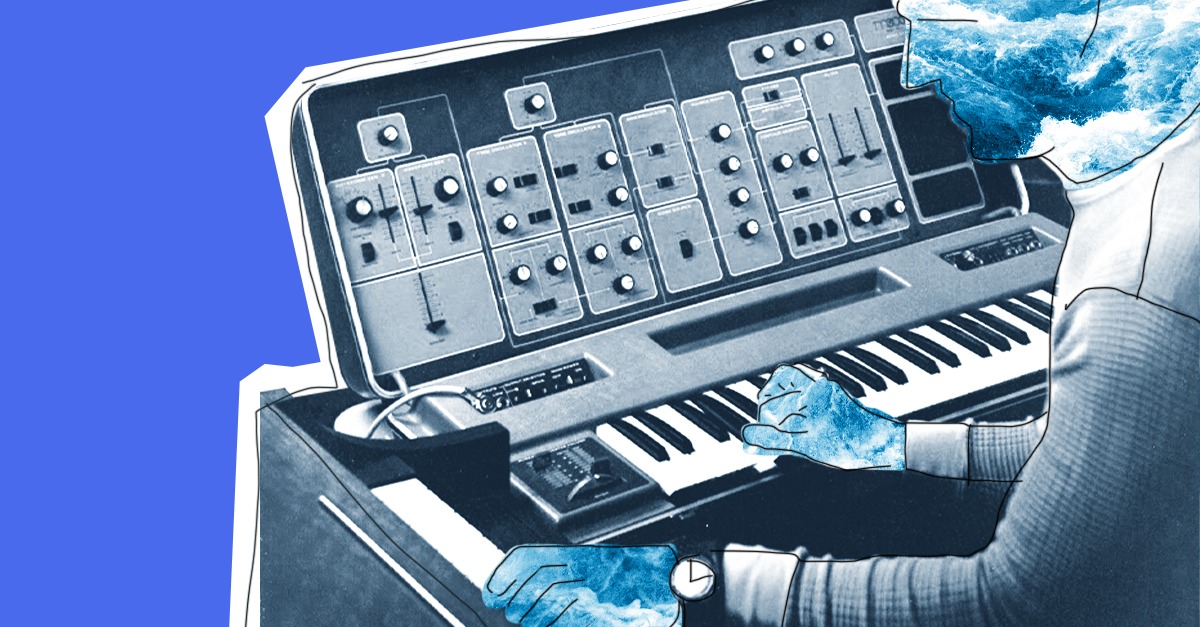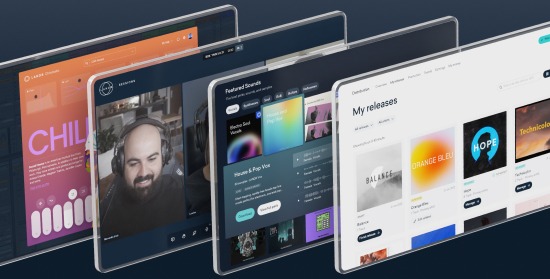What is Flow State and Why Does it Help You Make Better Music?

It’s easy to get overwhelmed when you’re creating new music.
Distractions come easily when we have so many software instruments, sample packs and audio effects at the tips of our fingers.
There’s been so many times I got distracted by browsing preset libraries that I’ve lost count!
That’s why I’ve been paying attention to pitfalls in my creative process lately.
It’s great to have so many tools to play with and all–but at the end of the day, the best music comes out when you fully immerse yourself in the process of making it.
Be self-aware while you make music
I’ve noticed that distractions come in two forms: self-inflicted and environmental.
Self-inflicted distractions usually stem from the project seeming too daunting at first.
You know that feeling when you doubt your abilities and make up reasons not to focus on the task at hand?
What’s worse is self-doubt is often crippling if you make music alone in an isolated home studio.
You might feel great when you start working on a song but hit a roadblock midway through.
As soon as you feel a hint of struggle, you lose confidence in yourself. This fear of roadblocks causes inner resistance.
Then come the environmental distractions.
A roommate or a family member knocks on your door at the worst time possible. Out of the blue, your neighbor next door starts blasting music in surround sound.
There’s not much you can do in those situations–at least not immediately.
Sure, you can start saving to rent a private production studio in the future. But what can you do in the meantime to increase the quality of your creative process?
It’s simple–prevent distractions that are within your immediate control.
Prevent distractions that are within your immediate control.
Does your mail application have to be on while you’re producing a track? Do you really have to keep your phone so close by while you’re writing lyrics?
You have to commit.
Improving your focus takes time. The first step is to confront the reasons behind your distractions and come up with a plan to confront your distractions.
Of course, this is a life-long journey.
So here’s a way to make an immediate impact–resist the urge to multitask when you make music.
Resist the urge to multitask when you make music.
A truly immersive creative experience requires your full attention. Here’s how you can get there.
1. Understand the nature of flow
Flow state is the psychological term used to describe what we musicians know as “being in the zone.”
It was first coined by the Hungarian-American psychologist, Mihaly Csikszentmihalyi, in 1975.
Decades later, neuroscientist Dr. Charles Limb put forward a theory. He said, “Artistic creativity is magical… But it’s not magic.”
According to Dr. Limb, musical improvisations activate certain parts of the brain. Eventually, musicians get in the zone and are able to completely commit to creating.
He explains this neurological origin of musical creativity in his 2010 TED talk
2. Recognizing flow state helps the creative process
We all experience the flow state of mind from time to time. But few of us can actually get in the zone whenever and wherever we want to.
When we come out of a flow state, the first thing we usually do is check the time. That’s because a truly immersive creative experience causes us to lose track of time.
What it takes to bring about “flow” varies from musician to musician.
For you, just turning off your phone might do the trick. Organizing the contents of your computer can be immensely helpful, too.
All you have to do is pay attention to the things that get you in the zone.
Pay attention to the things that get you in the zone.
Australian singer-songwriter Tash Sultana was so inspired by the philosophy behind flow state that she named her debut album after it.
She explains why in this interview from her YouTube channel.
Recognizing flow state leads to having control over it. Having control over it leads to consistent inspiration.
3. Practice does make perfect
Music producers tend to keep their eyes on the prize, and that prize is usually making tracks they’re proud of.
However, obsessing over the end goal takes away from the productivity of practice.
A songwriting session may not be fruitful in the way you wanted, but it’s still good practice.
A songwriting session may not be fruitful in the way you wanted, but it’s still good practice.
What’s most important is to ensure that you get the most you can out of that practice.
In the following video, Annie Bosler and Don Greene break down the science behind the saying, “practice makes perfect.”
The key is to practice effectively, rather than assuming that putting in the hours is enough.
Finding your flow state
Getting focussed in the studio takes time and effort, but if you really want to get in the zone it’s totally worth putting time into finding strategies to get there.
Maybe you need to shut off your phone, turn off your wi-fi and ask your roommates for some space during your creative hours.
Or maybe it’s time to invest in a private studio space or hardware that keeps you out of your DAW.
Changing up the way you work to find a work-flow that suits your creative needs is so important for finding that zone.
This is how I view my creative process nowadays. I acknowledge that I have to resist distractions happening in my surroundings first. Then, I make an effort to keep the ones emerging inside my brain at bay.
What I’ve found is that flow state is all about moving with intention. To achieve it, you have to commit to eliminating “the hundred other good ideas.”
Gear guides, tips, tutorials, inspiration and more—delivered weekly.
Keep up with the LANDR Blog.
Latest posts

